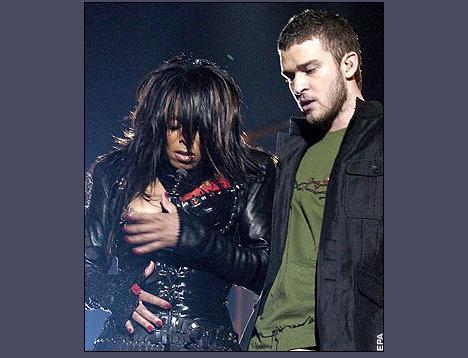After Losing Janet Jackson Battle, FCC Extends Its Misguided Policies into TV Product Placement Review

Two front page New York Times Business Day stories last Tuesday struck me for their irony… and their importance to media and advertising industry leaders. As expected and righteous, a federal appeals court tossed out the Federal Communications Commission $550,000 fine imposed on CBS for the infamous Janet Jackson wardrobe malfunction. It's farcical that this issue was even required to be resolved in the court system, costing both CBS and the government far more than the half-million fine. A nine-sixteenth second exposure of a female nipple covered by "a pastie" on live TV during the Super Bowl half-time game was perceived as so egregious that not only did it become the hottest news story of that event, but it also was one of the biggest stories of the year. In the end – it has proven to be the non-story it should have been from the beginning. It encapsulates the misguided political agenda of the Bush FCC under FCC Chairman Kevin Martin and personifies why the FCC has been so dysfunctional and largely impotent for the past seven years (although credit is due for approval of the XM/Sirius merger).
A secondNYTimes story was headlined "A Product's Place Is on the Morning News Set," and focused on product integration during local TV station morning programs. A key paragraph is: "Arrangements like these are anathema to journalists and media watchdogs. And the broader issue of product placements is under scrutiny at the Federal Communications Commission, which is weighing tighter rules for how sponsorships on TV shows are disclosed." There you go again, Mr. Martin. (The Supreme Court is about to rule on the FCC's appeal of another court's decision to strike down a commission policy imposing fines for the fleeting expletives uttered by Nicole Richie and Cher on Fox Network (and TV stations). It appears inconceivable the judgment will be reversed.)
The Times reporter, Stephanie Clifford, makes the personal judgment that such promotional deals are anathema to journalists, suggesting they support media watchdog groups. These same watchdog groups would love nothing more than to quash the First Amendment for their own political agenda, and I believe many journalists recognize and appreciate the fact that advertisers help pay their salaries and softness in the newspaper ad market is causing massive layoffs of journalists. Unless the TV industry identifies innovative new business models, local TV reporters will suffer the same fate. Unless the TV industry is permitted to stretch some boundaries in this new media environment, local TV news will quickly follow newspapers into the economic doldrums.
In the early 1980s, sections of the National Association of Broadcasters' (NAB) Code were struck down by a federal judge. As a result the NAB Code restrictions on local station advertising were suspended and a greater burden was placed on self-regulation. Self regulation has worked and continues to work in the media and advertising industry. Fundamentally, if our government wants to ensure the media industry's economic vitality and secure first amendment freedom of the press rights, it should keep its nose and political affairs out of the ad business.
When and if local TV stations and TV networks truly cross the divide and engage in deceptive practices or truly inappropriate content, the industry itself will step up and take action. Marketers themselves have little interest in attracting negative publicity around inappropriate marketing initiatives or blatantly inappropriate content. The innocent placement of McDonald's iced coffee cupsin front of morning show anchors on Meredith's Las Vegas TV station does not cross that line. Those old enough to recall the early days of television news recall that Camel cigarettes and Timex sponsored the NBC News with John Cameron Swayze. On-set signage was prominent. Local radio personalities have always used their relationships with consumers to advance their sponsors' interests. Today, media consumers (and especially younger ones) are sophisticated enough to recognize integrated marketing messages and to appropriately reward or ignore those companies that invest to support their favorite content.
Political attacks on the media have proven to be a political dog that will not hunt. While both the Clinton and Bush administrations pursued anti-media campaigns for political means, the Bush FCC under Chairman Martin has taken it to extremes and lost on virtually every issue. A sponsor's product on display should not demand the time, energy and budget of the federal government and court system. The only winners are the lawyers.
Chairman Martin issued a statement expressing surprise at the CBS/Janet Jackson Super Bowl court decision and commented he was "disappointed for families and parents." Either Martin is ignorant of the fact that 85 percent of parents believe theyshould control their children's viewing and that the government should not have the authority Martin has sought for the FCC. Thoughtful parents and the media and advertising communities should thank CBS and Fox for battling FCC initiatives that are, in effect, acts of censorship. The industry also needs to keep a watchful eye on product placement practices as economic models around advertising change by necessity.
JackMyers Think Tank will be on hiatus until September 2, 2008.


